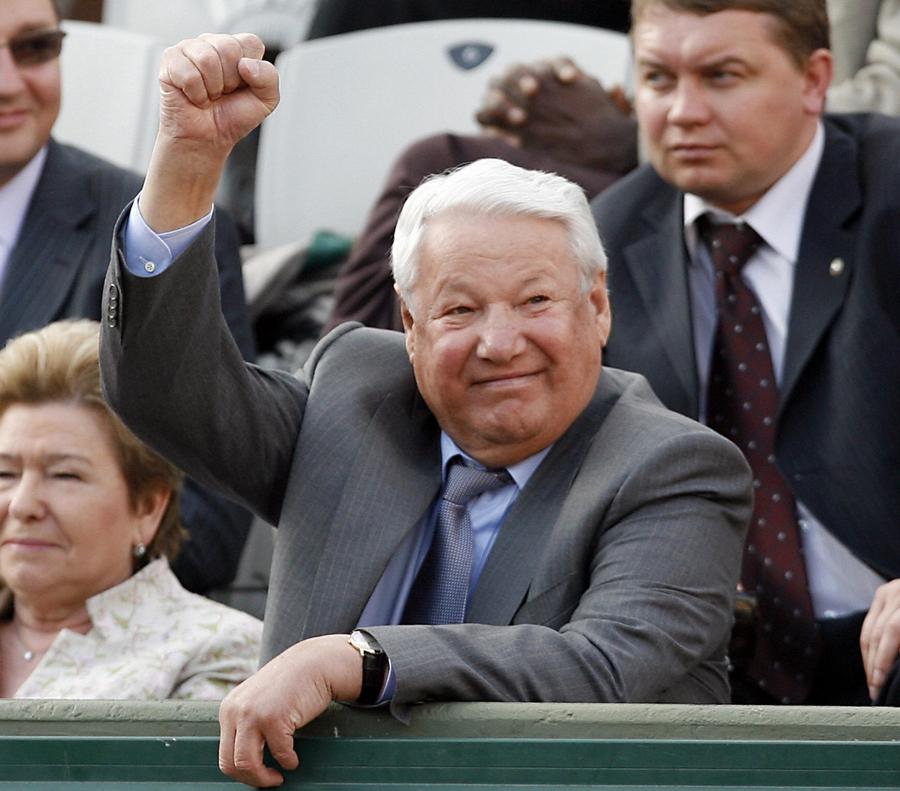What was Boris Yeltsin's Net Worth?
Boris Yeltsin was a Russian politician who had a net worth of $2 million at the time of his death in 2007. Boris Yeltsin served as the first president of Russia and is credited with transforming Russia's economy.
Early Life
Yeltsin was born on February 1, 1931, in Butka, Ural Oblast, and then grew up in Kazan, Tatar. He was born into a low-income Russian family who had lived in the area since the 18th century. His father was Nikolai Yeltsin, and his mother was Klavdiya Vasilyevna. Yeltsin was not very close to his father, who was abusive to his children and wife.
Yeltsin did well in school and studied at Pushkin High School. He then attended Ural Polytechnic Institute, where he studied industrial and civil engineering. He finished his studies in 1955 and began work with the Lower Iset Construction Directorate. He spent the next decade or so working on construction projects and joined the Communist Party in 1961.
Early Career
By 1968, Yeltsin began working full-time for the Communist Party. In 1976, he became the first secretary of the Sverdlovsk oblast committee. During his time in this role, he became friends with Mikhail Gorbachev. At the time, Gorbachev was also working in government in the city of Stavropol. After Gorbachev became the leader of Russia, he selected Yeltsin to focus on cleaning out corruption in government in 1985.
While Yeltsin proved to be an effective reformer, he was demoted after he started criticizing Gorbachev's leadership and the slow pace with which he was enacting change in the country. Yeltsin resigned from his leadership role in the Moscow party in 1987. However, he did not leave government altogether and instead became the deputy minister for construction. In fact, he remained a very popular figure throughout Russia, as many Russians supported his advocacy of democracy and economic reform.
Chairman
In 1989, he won a seat in the U.S.S.R Congress of People's Deputies after Gorbachev had introduced competitive elections in a landslide vote. The following year, in May of 1990, the parliament of the Russian S.F.S.F. elected Yeltsin chairman of the Supreme Soviet of the Russian Soviet Federation Socialist Republic, despite the fact that Gorbachev specifically pleaded with the other deputies not to elect him. In July, he decided to quit the Communist Party.
President of the USSR
In July 1991, Yeltsin won the majority of the popular vote in the democratic presidential election for the Russian republic. In doing so, he defeated Gorbachev's preferred candidate. A few months later, a coup was staged in an attempt to overthrow Gorbachev, but thanks in large part to Yeltsin, the coup failed. However, the attempted coup did destroy Gorbachev politically. Yeltsin took advantage of this position by beginning to take over various ministries and spreading his goal of dissolving the Soviet Union.
While it took some convincing, Yeltsin met with Gorbachev in December, and the two agreed to dissolve the Soviet Union. Gorbachev resigned the next day, and Yeltsin formally took power. The Russian Federation was born, and Yeltsin quickly began working to enact radical economic reform and expand democracy in the nation. He also signed accords with then-U.S. President George H. W. Bush to officially end the Cold War after almost 47 years.

(BERTRAND GUAY/AFP via Getty Images)
Yeltsin followed a program of macroeconomic stabilization, which involved harsh austerity. Interest rates were raised in order to restrict credit and tighten money. He also raised taxes and cut back on government spending on welfare programs. This resulted in skyrocketing prices throughout Russia and the general devastation of the standard of living for much of the Russian population. Many millions of people were plunged into poverty, and economists later described the event as worse than the Great Depression.
In 1993, people began protesting the deplorable living conditions in Russia under Yeltsin's leadership. At the same time, Yeltsin was trying to manage a dual power situation as he fought for power with the Supreme Soviet, the legislative branch of the government. In 1994, he also launched the military invasion of Chechnya, which further eroded his support both at home and abroad. However, he still announced he would seek reelection in 1996. After campaigning on promises to roll back some of his financial reforms, Yeltsin was able to secure the vote in a run-off election.
Yeltsin's second term lasted from 1996 until 1999. While in office, he fired his Prime Minister, Sergei Stepashin, and appointed the relatively unknown Vladimir Putin. He also announced his wish that Putin would succeed him. Yeltsin formally resigned on New Year's Eve in 1999. At that time, he was very aware that his approval rating was so low. Upon resigning, Putin took power.
Personal Life
Yeltsin married Naina Iosifovna Girina, a fellow student whom he had met in college, in September of 1956. She worked for most of her life at a scientific research institute. The couple had their first daughter together, Yelena, in 1957. They had a second daughter in 1960 named Tatyana.
During his first term as president, Yeltsin suffered from heart disease and had a series of heart attacks while in office. He also becomes increasingly dependent on alcohol during the latter years of his time in power. A number of stories regarding Yeltsin's strange and apparently drunken behavior received a great deal of attention in the global press.
Yeltsin died of congestive heart failure in April 2007 at the age of 76. The day of his funeral was declared a national day of mourning.
/2022/05/Boris-Yeltsin.jpg)
/2014/08/GettyImages-163615763.jpg)
:strip_exif()/2020/02/putin-net-worth.jpg)
/2022/03/Alexander-Lukashenko.jpg)
/2014/08/GettyImages-458847397.jpg)
/2010/04/Dmitry-Medvedev-1.jpg)
/2015/07/ghc.jpg)
/2023/01/Julian-McMahon.png)
/2022/06/joey-chestnut.png)
/2014/07/keith2.jpg)
/2009/11/Sigourney-Weaver.jpg)
/2010/05/Lenny-Kravitz-1.jpg)
/2012/09/Takeru-Kobayashi-1.jpg)
/2019/03/Karol-G.jpg)
/2011/03/Rickie-Fowler-1.jpg)
/2010/03/tw.jpg)
/2016/06/GettyImages-494820822.jpg)
/2022/05/Boris-Yeltsin.jpg)
/2014/08/GettyImages-163615763.jpg)
/2020/02/putin-net-worth.jpg)
/2014/06/GettyImages-166658718.jpg)
/2022/06/Viktor-Yanukovych1.jpg)
/2010/04/Dmitry-Medvedev-1.jpg)
/2012/05/GettyImages-106419567.jpg)
/2015/07/boris.jpg)